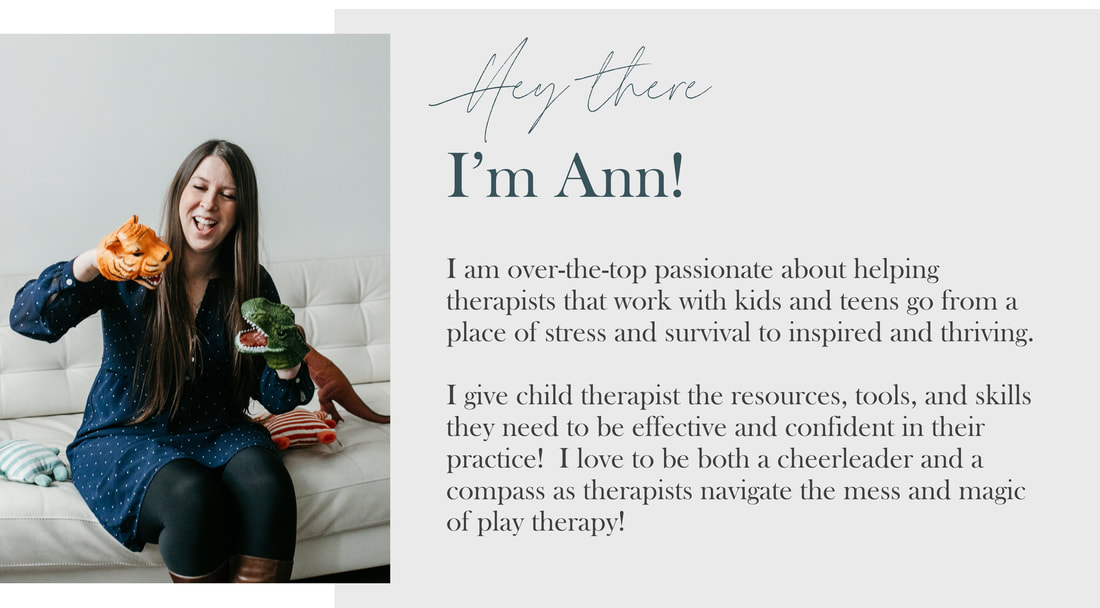|
When you have a child struggling with engaging in therapy this can show up in a lot of ways.
Some classics? Folded arms, refusal to leave the waiting room, glares, frequently saying “I don’t know” to every question, silence - and so many more.
Essentially - it feels like pulling teeth to get through the session even when you are pulling out all your favorite engagement techniques as each minute slowly ticks by.
And of course as therapists we are interested in knowing exactly WHY this reaction is happening so we can support our clients in engaging in therapeutic work. I mean….at least I hope this is what you are thinking. Some have labeled this behavior as defiance. Or treatment refusal. AND while on the surface it might look that way there is definitely more to the story. I get it - 99% of kids don’t sign themselves up for therapy willingly so they can go to a space where they sort out their most painful difficulties. And while some kids are relieved when their parents let them know that they are going to a special safe place where they can play out or talk about their difficulties, other kids, well…aren't And some kids? They are down right furious. Or terrified. Maybe both. All of these difficult reactions lead back to fear and vulnerability. To learn more about our nervous system’s difficulty with regulation and Polyvagal Theory check out this post HERE. So - the short of it? When kids feel safe, regulated, and connected they are able to be in a space to engage in therapy. Sure - they may be a little slow to warm up or have some days that feel off, but for the most part if they feel safe they are able to have enough regulation to participate in therapy. And these kids where we used words like resistant or defiant? Well… these behaviors are just telling the grownups in their life that they aren’t feeling safe enough in therapy (yet!) to have enough regulation to participate. It might be because they feel blamed like all the problems are their fault, may have experienced shame about their behaviors and emotions and worry that therapy will put a bigger focus on why they are “wrong”, they might feel ganged up on, worried to say “the wrong thing”, worried they will be in trouble, and might even be worried that they can’t make the changes that they believe are expected of them. And a million other reasons. Once we reframe resistance as a difficulty with feeling safe in the office and therapy space we can begin to brainstorm what might lead to difficulties with feeling safe AND what therapy can do to support safety. Do you need more support with resistance in the playroom? Check out my training Rolling With Resistance: Play Therapy Interventions For Your Most difficult To Engage Clients, with 25+ Play therapy activities to unlock resistance and increase engagement! Loading...
1 Comment
ERIN RYAN BURDETTE
7/31/2023 10:31:19 am
Hi,
Reply
Leave a Reply. |
Hi, there!I'm Ann Meehan, an LPCC, Loading... Archives
July 2024
Categories
All
|
Privacy Policies | Terms of Use | Disclaimer
Contact
[email protected] | Copyright Meehan Mental Health Services 2022
Contact
[email protected] | Copyright Meehan Mental Health Services 2022







